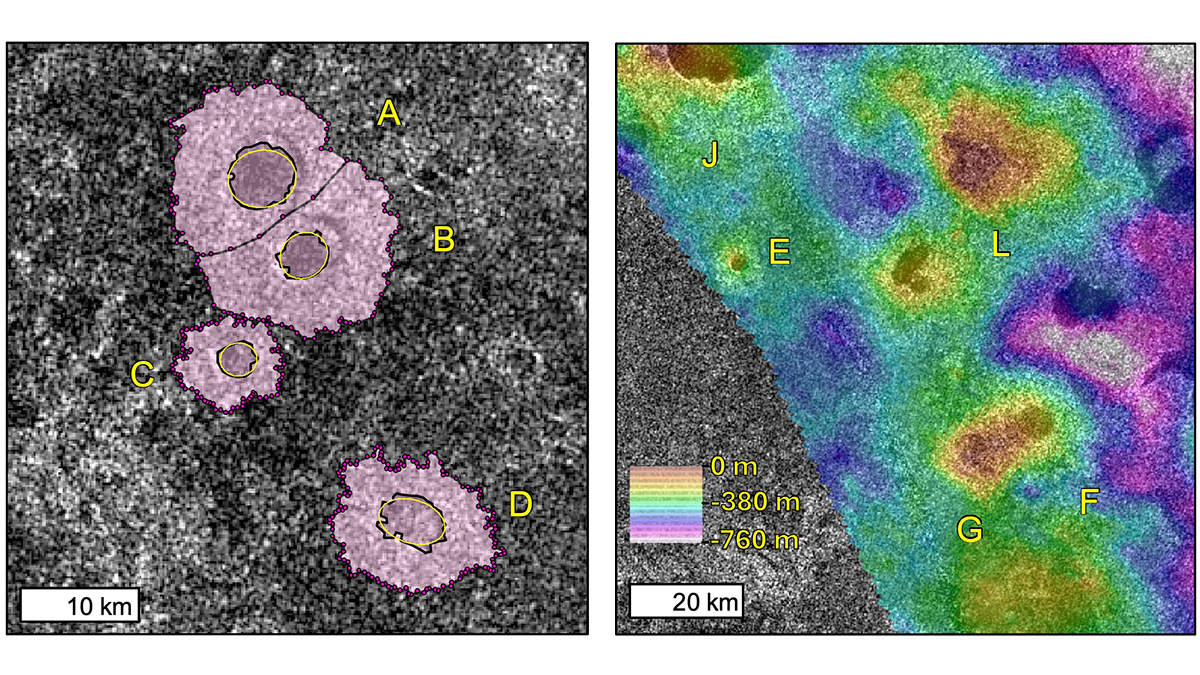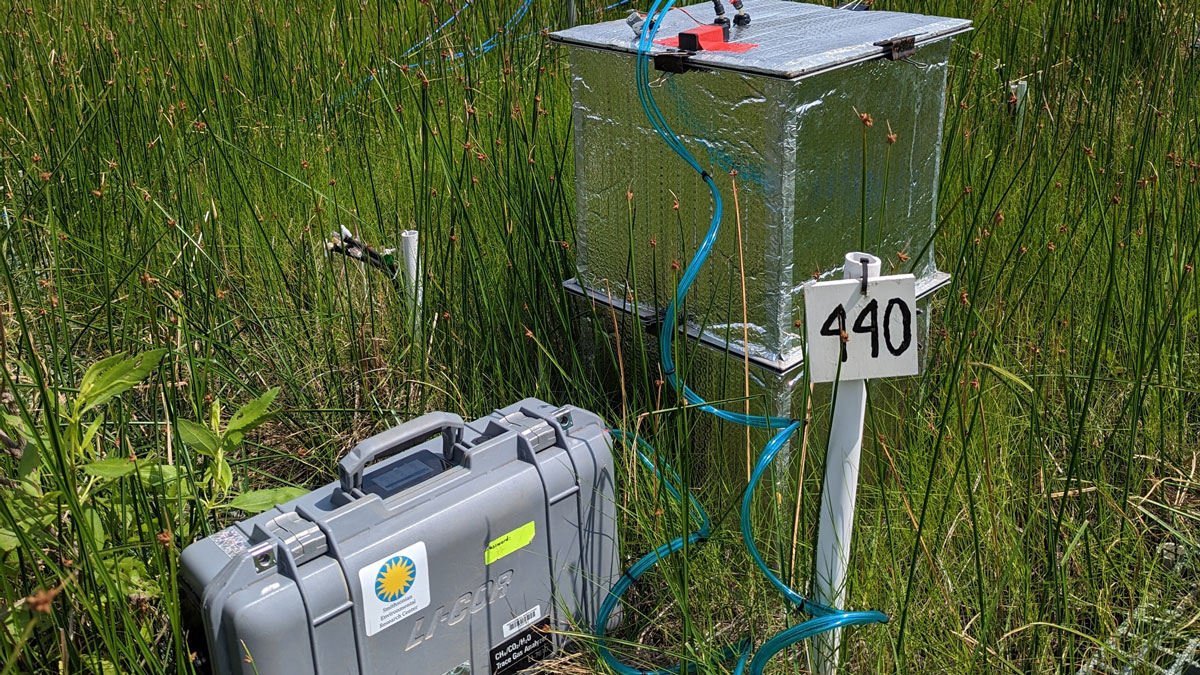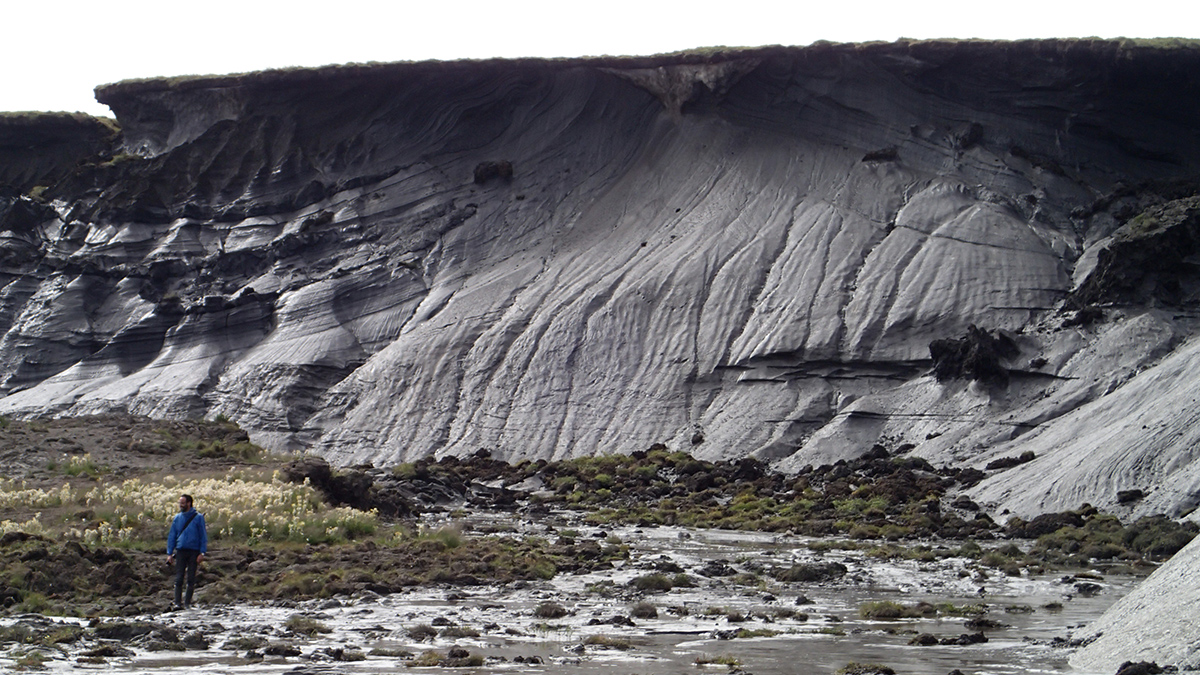In a new study, volcanic explosions are explored and modeled to understand the possible origins of rampart craters on Titan and determine whether their formation can source atmospheric methane.
methane
Dry Heat, Wet Heat, and Wetland Methane Emissions
Compound weather events—such as extreme cold or heat combined with severe dryness or precipitation—have a greater effect on wetland methane emissions than discrete weather extremes do.
New Software Package Helps Scientists Find Flux
An easy-to-use R package offers a more efficient way to sort through and analyze data about greenhouse gas levels collected in static chamber experiments.
Clumped CO Isotopes – New Tracers for Atmospheric Chemistry
A new study reports the first measurements of 13C18O in atmospheric carbon monoxide (CO) and show their variations reflect chemical ‘aging’ consistent with predicted kinetic isotope effects.
Thawing Permafrost Is Affecting Climate, but It’s Unclear by How Much
Models produce widely varying estimates of how ecosystems in the northern permafrost region are currently affecting the global greenhouse gas budget.
Microbes in Tree Bark Absorb Millions of Tons of Methane Each Year
New findings suggest that reforestation efforts could have a bigger—and more positive—climate impact than previously estimated.
Das Oktoberfest—viel Bierzeltdunst und Methan
Unvollständige Verbrennung und biogene Emissionen—Atemausstoß und Flatulenz—machen das Oktoberfest zu einer starken, wenn auch zeitlich begrenzten Quelle des potenten Treibhausgases.
Fifty-Three Experts Weigh in on the Global Methane Budget
A survey of experts revealed that uncertainty in estimates of global methane levels stems largely from data on fresh water, vegetation, and coastal areas.
Los planetas enanos muestran evidencias de reciente actividad geológica
Los grandes cuerpos del Cinturón de Kuiper y más allá podrían haber albergardo océanos en la subsuperficiales.










